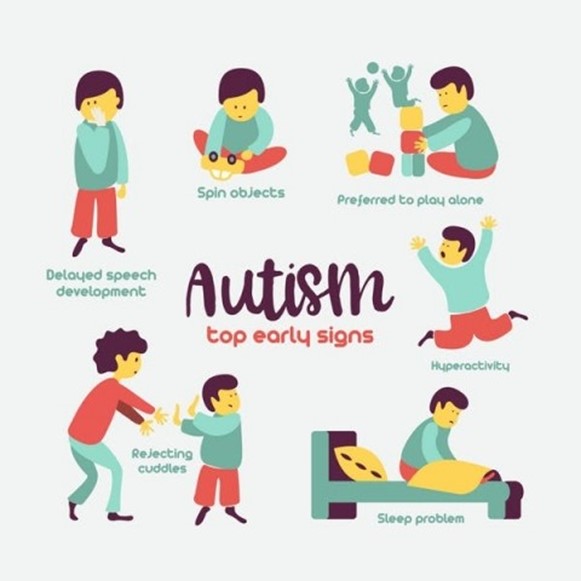A nurse is collecting data from a 3-month-old infant.
Which of the following findings should the nurse report to the provider?
The infant is unable to roll from the back to the abdomen.
The infant is unable to use a pincer grasp to pick up objects.
The infant is unable to raise his head when in a prone position.
The infant is unable to sit without support.
The Correct Answer is C
By 3 months old, most babies can lift their heads and chest up from a belly-down position.
Choice A is not correct because it is normal for a 3-month-old infant to be unable to roll from back to abdomen.
Choice B is not correct because it is normal for a 3-month-old infant to be unable to use a pincer grasp to pick up objects.
Choice D is not correct because it is normal for a 3-month-old infant to be unable to sit without support.
Nursing Test Bank
Naxlex Comprehensive Predictor Exams
Related Questions
Correct Answer is C
Explanation
A child with autism spectrum disorder may have problems with social communication and interaction, including ignoring a caregiver who offers them a snack.
Choice A is incorrect because crying and stomping feet after another child takes a toy is normal behavior for a 2- or 3-year-old child.
Choice B is incorrect because repeating an action over and over is not necessarily indicative of autism spectrum disorder.
Choice D is incorrect because flipping a light switch off and on until asked to stop and join other children in playing is not necessarily indicative of autism spectrum disorder.

Correct Answer is C
Explanation
By 3 months old, most babies can lift their heads and chest up from a belly-down position.
Choice A is not correct because it is normal for a 3-month-old infant to be unable to roll from back to abdomen.
Choice B is not correct because it is normal for a 3-month-old infant to be unable to use a pincer grasp to pick up objects.
Choice D is not correct because it is normal for a 3-month-old infant to be unable to sit without support.
Whether you are a student looking to ace your exams or a practicing nurse seeking to enhance your expertise , our nursing education contents will empower you with the confidence and competence to make a difference in the lives of patients and become a respected leader in the healthcare field.
Visit Naxlex, invest in your future and unlock endless possibilities with our unparalleled nursing education contents today
Report Wrong Answer on the Current Question
Do you disagree with the answer? If yes, what is your expected answer? Explain.
Kindly be descriptive with the issue you are facing.
